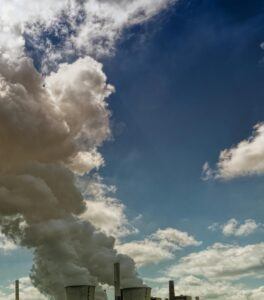STNMS Screening Test – 2024
Sant Tukaram National Model School, Latur ( STNMS) is one of the leading college in India for the preparation of the NEET/ JEE exam.
https://biosimplified.com/stnms-screening-test-2024/
STNMS Screening Test – 2024
STNMS Conduct Screening test to take admission to the STNMS college , in this article we are we will study the most expected question to the STNMS Screening test – 2024
STNMS Screening Test – 2024 Expected Question
1) Vertical distribution of different species occupying different level is called …..
a) Niche
b) Ecotone
c) Ecosphere
d) Stratification
Solution – Vertical distribution of different species occupying different level is called as Stratification
example – trees occupy top vertical strata or layer of a forest, shrubs the second and herbs and grasses occupy the bottom layers
2) Transition between two types of Ecosystem is known as …..
a) Ecotone
b) Niche
c) Ecosphere
d) none of the above
Solution – Transition between two types of Ecosystem is known as Ecotone
3) Each Trophic level has a certain mass of living material at a particular time called as the ….
a) Trophic level
b) Standing crop
c) Saprotrophs
d) food web
Solution – Each Trophic level has a certain mass of living material at a particular time called as the Standing Crop
the Standing crop is measured as the mass of living organisms or the number in a unit area
4) In India Air ( Prevention and Control of Pollution ) Act came into force in ……
a) 1975
b) 1995
c) 1989
d) 1981
Solution – In India Air ( Prevention and Control of Pollution ) Act came into force in 1981
it was amended later in 1987 to include the Noise as an air pollutant

https://biosimplified.com/the-living-world-11-ncert-mcq-test-neet/
5) Horizontal Distribution of species along with ground level is called ……
a) Gross primary productivity
b) Stratification
c) Zonation
d) None of the above
Solution – Horizontal Distribution of species along with ground level is called Zonation
6) The Process in which Detritus break down into smaller particle by action of Detritivores is known as
a) Catabolism
b) Leaching
c) Fragmentation
d) Litter
Solution – The process in which Detritus break down into smaller particle by action of Detritivores is known as Fragmentation
it increase the surface area if detritus particle for microbial action
https://en.wikipedia.org/wiki/Detritivore
7) Actual organic matter stored by producer is called as …..
a) Secondary Productivity
b) Net Productivity
c) Net Primary Productivity
d) Humification
Solution – Actual Organic matter stored by producer is known as Net Primary Productivity
8) Presence of large amount of nutrients in water that causes excessive growth of Planktonic algae is known as …….
a) Biomagnification
b) algal bloom
c) Humification
d) none of the above
Solution – Presence of large amount of nutrients in water that causes excessive growth of Planktonic algae is known as the algal bloom

9) The term Ecosystem was coined by ………
a) AG Tansley
b) E. P. Odum
c) C Darwin
d) None of the above
Solution – The term Ecosystem was coined by AG Tansley
10) Who explained the component of ecosystem on the basis of Trophic level
a) AG Tansley
b) C Darwin
c) E. P. Odum
d) None of the above
Solution – Eugene P. Odum explained the component of ecosystem on the basis of Trophic Level
11) The Term Niche was first used by …….
a) AG Tansley
b) Grinnel
c) E o Wilson
d) Thomas L
Solution – The term Niche was first used by Grinnel in the 1970’s
12) Who studied 1st the Ecological Pyramid
a) Thomas L
b) E o Wilson
c) Charles Elton
d) None of the above
Solution – Charles Elton studied Ecological Pyramid first in 1927
Ecological Pyramid – It is the Graphical Representation of ecological parameters such as biomass, number, energy at different Trophic level of the food chain
13) Energy Flow in Ecosystem in …….
a) Bidirectional
b) Multidirectional
c) all around
d) Unidirectional
Solution – The flow of Energy in Ecosystem is Unidirectional
14) The Gain in mass per unit per unit of plant in unit time is known as
a) Biomass
b) NAR
c) Relative growth rate
d) Energy flow
Solution- The gain in mass per unit of plant in unit time is known as Relative growth rate
15) The total dry mass of all organism in an ecosystem is known as
a) R
b) NAR
c) Biomass
d) None of the above
Solution – The total dry mass of all organism in an ecosystem is known as Biomass
